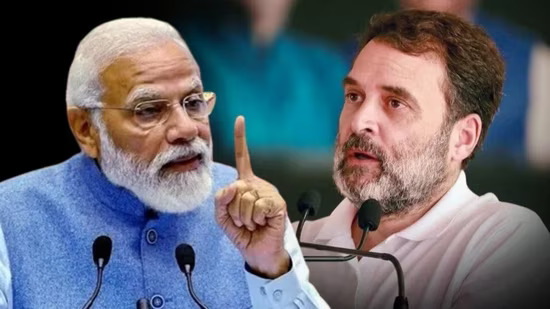Harnessing Media Influence: Shaping Positive Change in India’s Political Landscape
In the vibrant democracy of India, where elections are not just events but pivotal moments shaping the nation’s trajectory, the role of media cannot be overstated. From traditional outlets to the dynamic realm of social media, media serves as the conduit through which ideas, messages, and narratives are disseminated to the masses.
At the heart of India’s current political landscape are the ongoing elections, where stalwarts like Narendra Modi, Amit Shah, Rajnath Singh, Yogi Adityanath, and Nitin Gadkari, among others, vie for leadership positions. Conversely, contenders like Rahul Gandhi and his allies seek to form a formidable opposition. In this crucible of democracy, the media emerges as both a watchdog and a guide, wielding the power to shape public opinion and influence the course of history.

Transparency is the cornerstone of democracy, and the media plays a pivotal role in upholding this principle. By providing unbiased coverage, scrutinizing policies, and holding leaders accountable, media outlets empower citizens to make informed decisions at the ballot box. In an era marked by misinformation and fake news, the responsibility of the media becomes even more pronounced. Social media platforms, with their wide reach and instantaneous dissemination of information, have become powerful tools for shaping public discourse. However, this power comes with a caveat: the onus lies on individuals to discern fact from fiction, to ensure that truth prevails over sensationalism.
In this digital age, where every citizen is a potential journalist, the role of media in fostering positive change cannot be overstated. By harnessing the power of social media to amplify voices, share stories, and hold those in power accountable, individuals can collectively drive progress and shape the future of the nation. However, with great power comes great responsibility. It is incumbent upon all stakeholders, be it media professionals, influencers, or ordinary citizens, to use this platform judiciously, to promote dialogue, foster understanding, and contribute to the collective well-being of society.

In conclusion, the role of media in India’s political landscape is not just that of an observer, but a catalyst for change. By championing transparency, accountability, and truth, media outlets have the potential to shape a future where democracy thrives, and the voices of the people are heard. As we navigate the complexities of governance and politics, let us remember the transformative power of media, and the pivotal role it plays in shaping our collective destiny.
In today’s digital age, the influence of media, both traditional and social, is unparalleled in shaping public opinion and catalyzing positive change. As India navigates through crucial elections, the role of media in fostering transparency and promoting informed decision-making cannot be overstated.
1. Fostering Transparency: Media outlets serve as watchdogs, ensuring that political processes remain transparent and accessible to the public. Through investigative journalism and comprehensive coverage, they uncover vital information about candidates, policies, and electoral processes, enabling citizens to make informed choices.
2. Amplifying Voices: Social media platforms have democratized the dissemination of information, allowing individuals from all walks of life to share their perspectives and concerns with a global audience. This amplification of diverse voices fosters inclusivity and empowers marginalized communities to participate in the political discourse.
3. Combatting Misinformation: In an era rampant with misinformation, media plays a crucial role in fact-checking and debunking false narratives. Social media platforms, equipped with algorithms and community-driven moderation, help curb the spread of misinformation, ensuring that accurate information prevails.
4. Promoting Civic Engagement: Through online forums, live debates, and interactive content, media and social media platforms encourage civic engagement and dialogue among citizens. By providing a space for constructive discourse and debate, they foster a culture of participation and activism, driving positive change from the grassroots level.
5. Holding Power Accountable: Perhaps most importantly, media serves as a check on power, holding elected officials and institutions accountable for their actions. Whether through investigative reporting or citizen journalism, media exposes corruption, malfeasance, and abuse of power, ensuring that those in positions of authority remain answerable to the public.
In conclusion, the symbiotic relationship between media and social media is instrumental in driving positive change in India’s political landscape. By fostering transparency, amplifying voices, combating misinformation, promoting civic engagement, and holding power accountable, they empower citizens to actively participate in shaping the future of their nation. As India embraces the digital age, harnessing the potential of media and social media as forces for good is essential in building a more equitable, inclusive, and democratic society.



